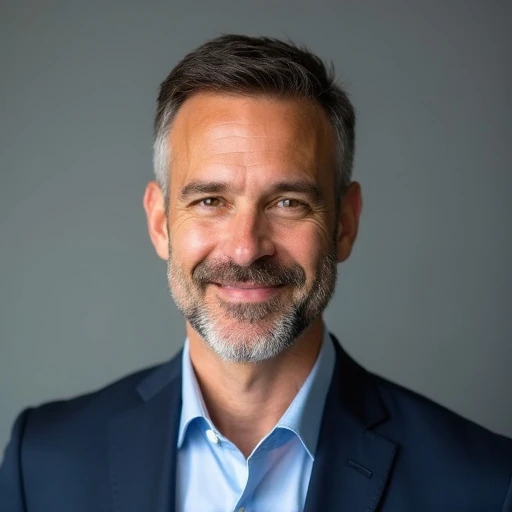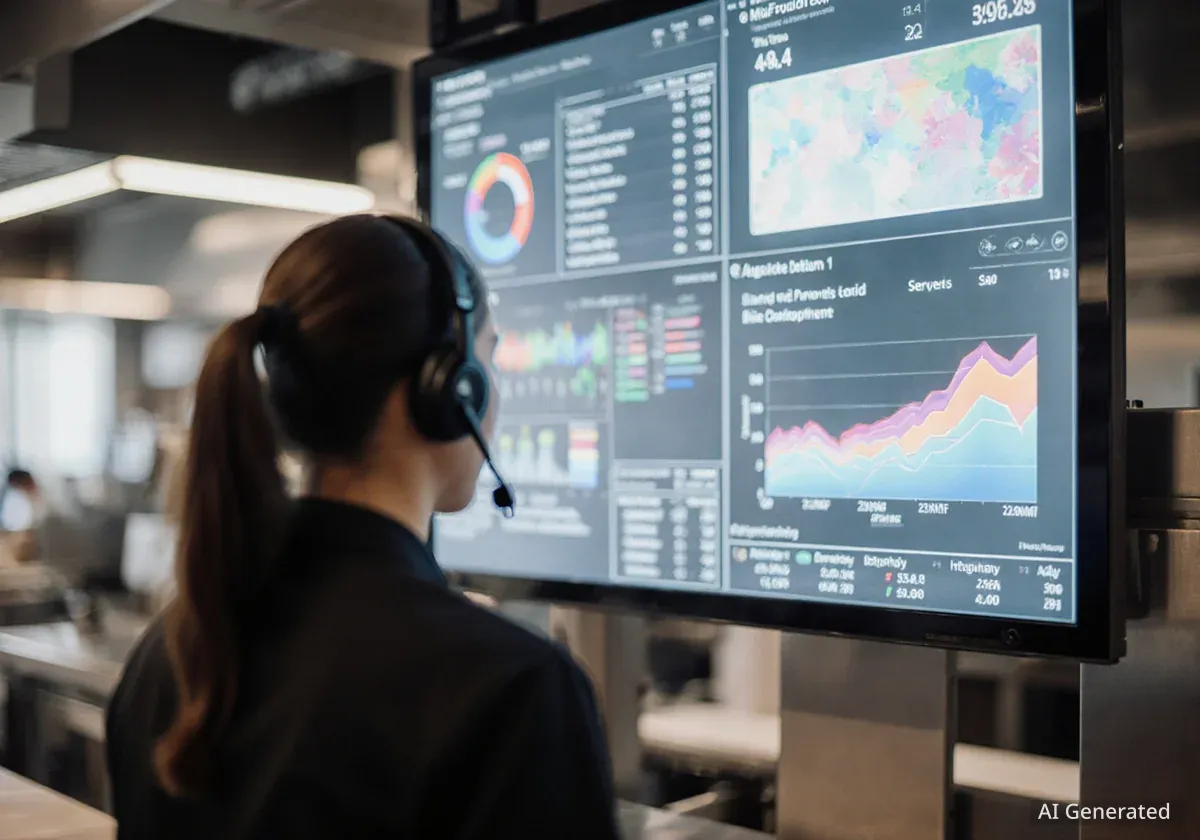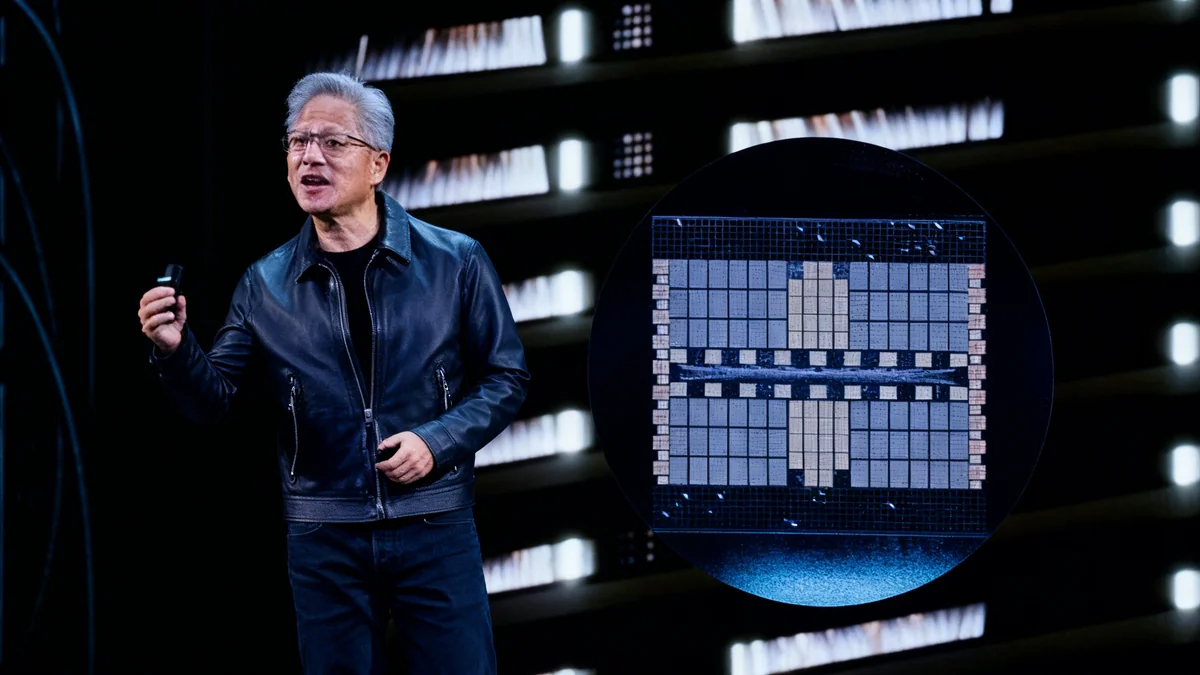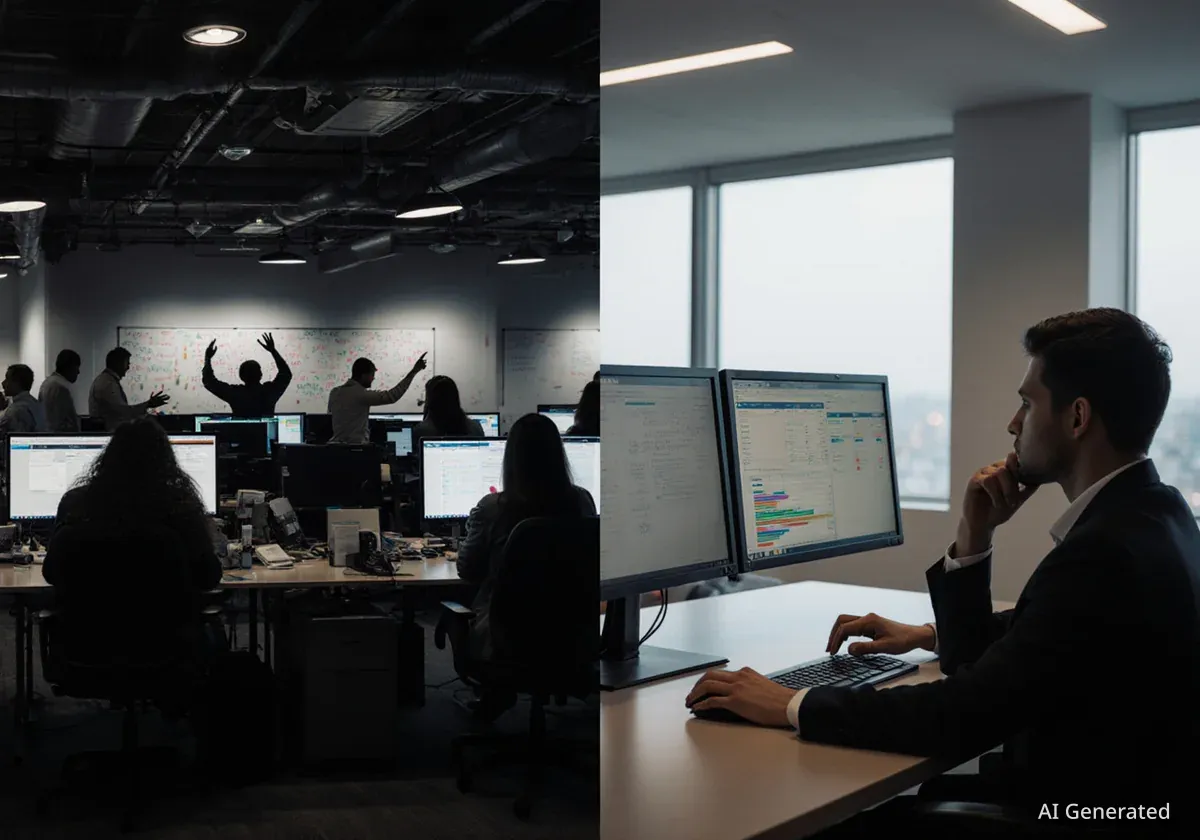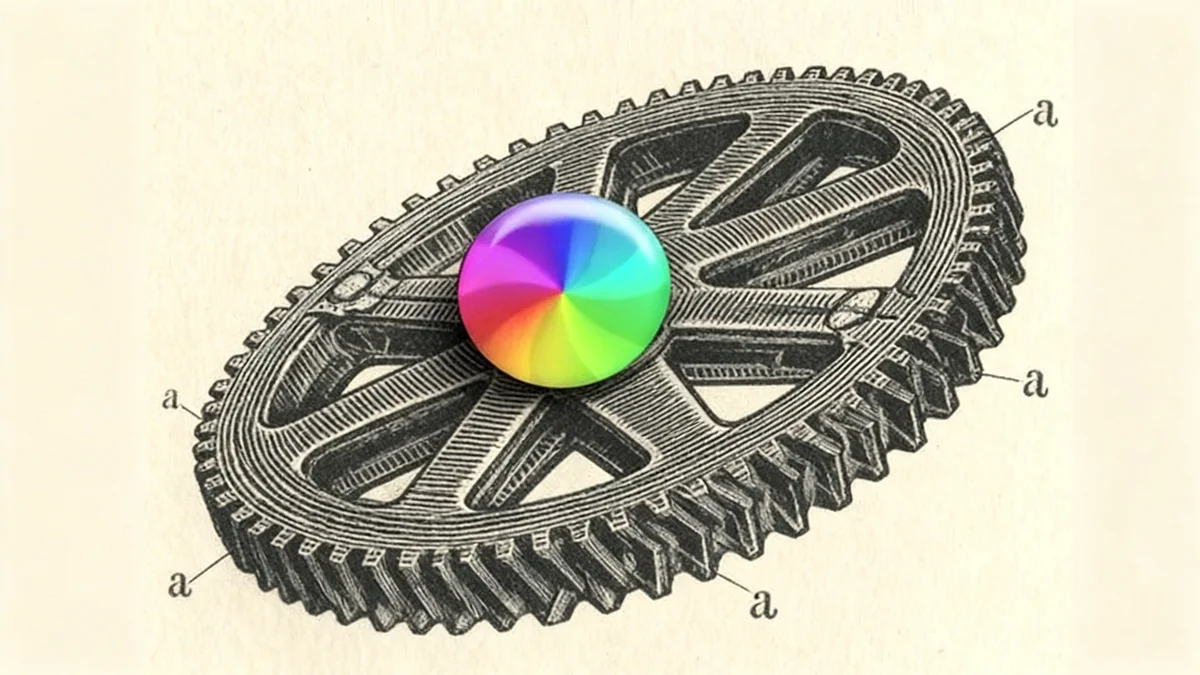OpenAI has completed a major corporate restructuring, creating a new framework that formalizes its relationship between its nonprofit mission and its for-profit operations. The move solidifies its partnership with Microsoft, introducing significant new financial commitments and updated terms for collaboration on artificial intelligence development.
The artificial intelligence company announced the changes on Tuesday, establishing the OpenAI Foundation as the controlling nonprofit entity and rebranding its commercial arm as OpenAI Group PBC, a public benefit corporation. This recapitalization values Microsoft's stake in the venture at approximately $135 billion.
Key Takeaways
- OpenAI has restructured, with a nonprofit foundation now controlling its for-profit public benefit corporation.
- The OpenAI Foundation holds a 26% equity stake in the for-profit arm, valued at around $130 billion.
- Microsoft's stake is now valued at $135 billion, representing about 27% of the company.
- As part of the deal, OpenAI will purchase an additional $250 billion in Microsoft Azure cloud services.
- The partnership agreement has been updated, allowing both companies more flexibility in pursuing Artificial General Intelligence (AGI).
A New Corporate Blueprint
The new structure is designed to ensure OpenAI's original mission—developing safe and beneficial AI—remains paramount. The nonprofit OpenAI Foundation will now oversee the for-profit OpenAI Group PBC. This arrangement aims to channel the commercial success of the for-profit entity back into philanthropic and research-oriented goals.
Under the new capitalization, the OpenAI Foundation holds a significant 26% equity stake in the commercial business. This stake is currently valued at an estimated $130 billion. The remaining equity is split, with 47% held by current and former employees and investors, and approximately 27% held by Microsoft.
What is a Public Benefit Corporation (PBC)?
A Public Benefit Corporation is a type of for-profit corporate entity that includes a positive impact on society, workers, the community, and the environment in addition to profit as its legally defined goals. Directors of a PBC must balance the financial interests of shareholders with the best interests of those materially affected by the corporation's conduct and its specific public benefit purpose.
In a statement, OpenAI explained the logic behind the structure. "The more OpenAI succeeds as a company, the more the non-profit’s equity stake will be worth, which the non-profit will use to fund its philanthropic work," the company stated. This model directly links commercial growth to the funding of its foundational mission.
Strengthening the Microsoft Alliance
The restructuring also redefines the strategic partnership between OpenAI and its largest backer, Microsoft. The collaboration, which began in 2019, enters a new phase with updated terms and massive financial commitments.
A cornerstone of the new agreement is OpenAI's commitment to purchase an incremental $250 billion in Azure cloud computing services. This deepens OpenAI's reliance on Microsoft's infrastructure for training and deploying its sophisticated AI models.
By the Numbers: OpenAI's New Structure
- $135 Billion: Current valuation of Microsoft's investment in OpenAI Group PBC.
- $130 Billion: Estimated value of the OpenAI Foundation's equity stake.
- $250 Billion: Additional Azure services OpenAI has agreed to purchase.
- $25 Billion: The foundation's initial commitment to health and AI resilience projects.
The partnership also gains new flexibility. Microsoft will no longer have a first right of refusal to be OpenAI's exclusive compute provider. This change suggests OpenAI may explore other infrastructure options in the future, although the massive Azure commitment keeps Microsoft as its primary partner for the foreseeable future.
The Path to Artificial General Intelligence
A critical component of the updated agreement addresses the long-term goal of achieving Artificial General Intelligence (AGI), a hypothetical AI that can understand or learn any intellectual task that a human being can.
Independent Verification of AGI
The companies have established a new protocol for what happens when AGI is potentially reached. Any claim by OpenAI that it has developed AGI must be verified by an independent expert panel. This introduces a third-party check on a technological milestone with profound implications.
The existing revenue-sharing agreement between the two tech giants will remain in effect until this panel officially verifies the achievement of AGI. This clause creates a clear and mutually agreed-upon process for navigating a future technological breakthrough.
"As we step into this next chapter of our partnership, both companies are better positioned than ever to continue building great products that meet real-world needs, and create new opportunity for everyone and every business," Microsoft said in a statement regarding the new arrangement.
New Freedoms in AI Development
The updated terms also grant both companies more autonomy. Microsoft now has the explicit right to pursue AGI development independently or through collaborations with other third parties. Similarly, OpenAI can now jointly develop certain products with partners other than Microsoft, opening the door for new collaborations across the industry.
Despite these new freedoms, OpenAI remains Microsoft's designated frontier model partner. Microsoft's intellectual property rights for OpenAI's models and products are extended through 2032, a term that now includes post-AGI models. One notable exception is any consumer hardware developed by OpenAI, which is excluded from Microsoft's IP rights.
A Philanthropic Mission Funded by Profit
With its significant equity stake, the OpenAI Foundation is positioned to become a major philanthropic force. The foundation has already announced an initial commitment of $25 billion. This funding will be directed toward two primary areas: accelerating health breakthroughs and developing technical solutions to ensure AI resilience and safety.
This initiative directly reflects the company's charter to ensure that AGI benefits all of humanity. By structuring the company so that commercial success directly funds this mission, OpenAI aims to create a self-sustaining cycle of innovation and public benefit.
The completion of this recapitalization marks a pivotal moment for OpenAI, establishing a long-term corporate and financial framework as it continues its push toward more advanced artificial intelligence.

